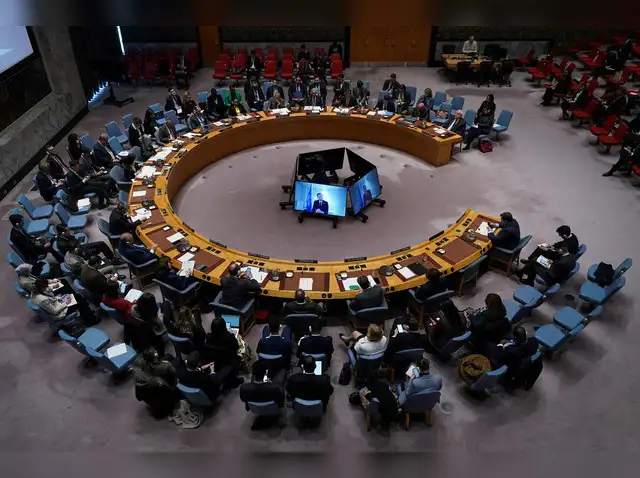The United Nations Security Council (UNSC) came down heavily on Pakistan during a closed-door meeting in New York, following the brutal terror attack in Pahalgam, Jammu and Kashmir, which left 26 civilians dead, including tourists and a local pony operator. The attack, which took place on 22 April 2025 in Baisaran Valley, has been described as the deadliest on civilians in India since the 2008 Mumbai attacks.
The massacre shocked the nation, with eyewitnesses recounting how the militants singled out tourists based on their religion, asking them to recite Islamic verses and targeting those who could not. The Resistance Front (TRF), an offshoot of the Pakistan-based Lashkar-e-Taiba (LeT), initially claimed responsibility for the attack, though it later retracted its claim. Investigations by Indian authorities have linked the attack to LeT operatives, with digital and forensic evidence pointing towards safe houses in Pakistan and directives allegedly coming from Pakistan’s intelligence agency, the ISI.
In the wake of the attack, tensions between India and Pakistan soared. India accused Pakistan of supporting cross-border terrorism, suspended the Indus Waters Treaty, expelled Pakistani diplomats, and imposed trade and travel restrictions. Pakistan, in retaliation, suspended the Simla Agreement and closed its airspace to Indian flights, leading to frequent ceasefire violations along the Line of Control.
Pakistan Failed to Gather Support at UNSC
Against this tense backdrop, Pakistan, a non-permanent member of the UNSC, requested an emergency closed-door consultation to discuss the deteriorating security situation. However, the meeting did not yield the support Pakistan had hoped for. Instead, UNSC members posed “tough questions” to the Pakistani delegation, particularly about the involvement of Lashkar-e-Taiba in the Pahalgam attack. The Council members refused to accept Pakistan’s narrative that the incident was a “false flag” operation orchestrated by India, and instead pressed for accountability and a thorough investigation into the role of Pakistan-based groups.
Several members expressed concern over Pakistan’s recent missile tests and nuclear rhetoric, warning that such actions only escalate regional tensions. The UNSC also highlighted the targeting of tourists based on their religious identity, condemning the attack as a grave violation of human rights and international norms.
United Nations Secretary-General António Guterres strongly condemned the attack, calling it “awful” and extending his sympathies to the victims’ families. He emphasised that targeting civilians is unacceptable under any circumstances and called for maximum restraint from both India and Pakistan, warning that any military confrontation could have devastating consequences.
Despite Pakistan’s efforts to internationalise the Kashmir issue, most UNSC members urged both countries to resolve their differences through direct dialogue and peaceful means. The Council did not issue any formal statement after the meeting, but the message from the international community was clear: accountability is essential, and violence is not the answer.
In India, the government has ramped up security measures and ordered mock drills for civilians in sensitive areas. The National Investigation Agency (NIA) continues its probe, focusing on the network of LeT operatives and local sleeper cells believed to have aided the attackers.
The Pahalgam attack has once again brought the spotlight on cross-border terrorism and the urgent need for international cooperation to combat such threats. The UNSC’s tough stance signals growing impatience with Pakistan’s repeated denials and highlights the global consensus against terrorism in all its forms.


